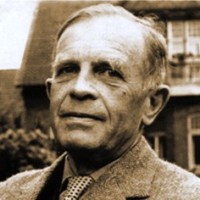Wilhelm Roepke: German Economist as Southern Neighbor, by Ralph E. Ancil
How can a German economist be called a Southerner? Obviously not geographically but in the important sense that Southern Agrarians came to understand, as a possession of the mind and spirit. That Wilhelm Roepke’s mind and spirit, embodying the best of the German tradition, share significantly in the essential features of the Southern heritage is not too surprising when it is recalled that Southern culture itself was essentially European.
In evidence of this there are some suggestive comparisons that can be made here. For example, Richard Weaver went home in spring to farm his ancestral fields with horse and plow and refused the use of airplanes, preferring trains for long distance travel. Similarly, Roepke promoted urban gardening for the health of city-dwellers and refused to use ski-lifts, preferring to ride up the mountain slopes on shank’s mare. Or one may refer to the Southern fondness for the books of Sir Walter Scott whose stories of Saxon yeomen fighting Norman invaders parallels those of William Tell fighting Austrian conquerors as eulogized in Schiller’s famous poem, admired by Roepke. Then one may conjecture about the influence of Germans and Lutherans on Southern life. Certainly, Luther himself was a social medievalist and agrarian and longed for the non-commercial life of an earlier time. To what extent this affected Southern life is arguable as is the effect of his Lutheran faith on Roepke’s outlook. But the parallels are thought-provoking.
Read the complete article in The Imaginative Conservative
